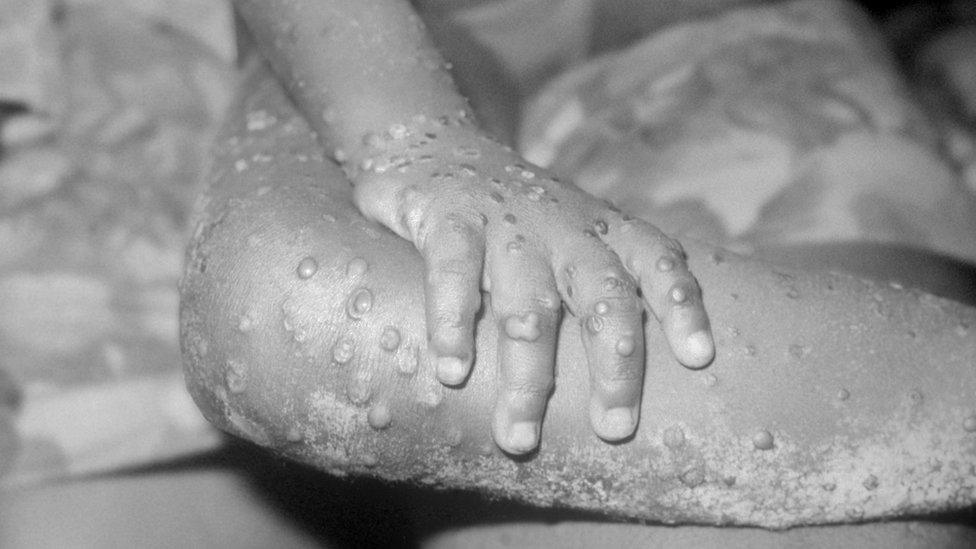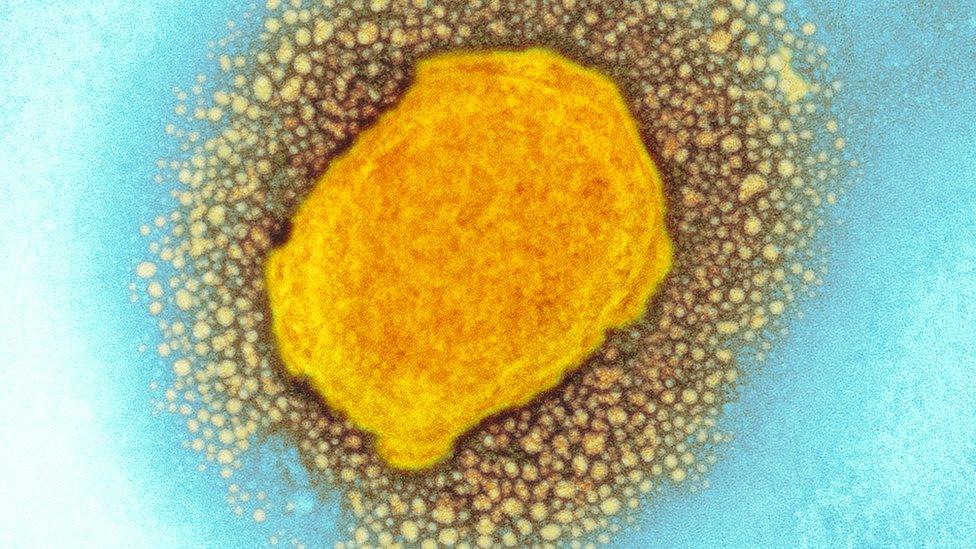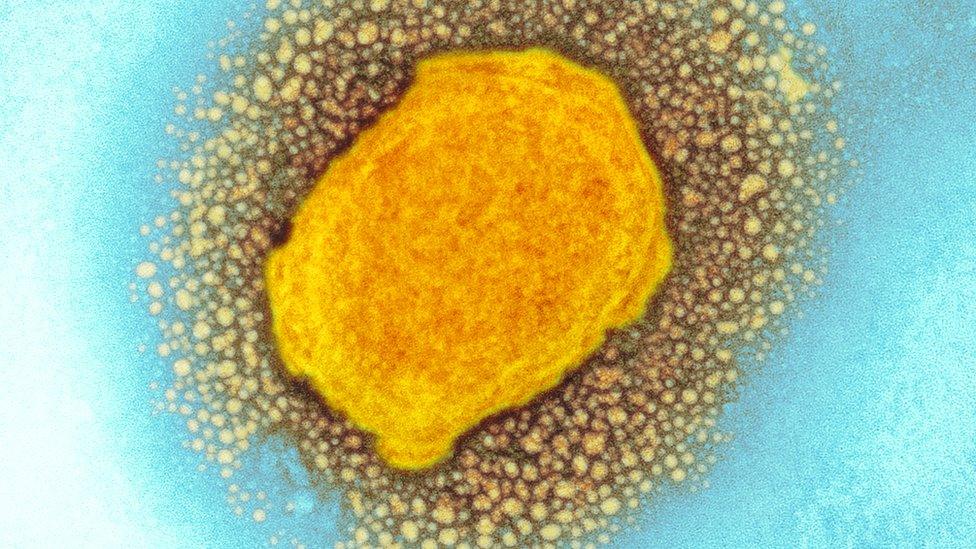Monkeypox: Plans in place to stock up on treatments if infections rise
- Published

Symptoms of monkeypox include a rash which starts on the face and spreads to the body
Plans are in place to stock up on treatments for monkeypox in case infections rise, London's public health regional director has said.
Nine people have been diagnosed with the virus in the UK, with nearly all of those based in London.
Prof Kevin Fenton said health experts were watching the situation closely to see whether infections spread.
He added it was a "very, very rare condition", but they wanted to raise awareness among those at risk.
Monkeypox is usually associated with travel to West Africa.
Symptoms include fever, headaches, swellings, aches and exhaustion, although experts say the chances of infection are low.
On Wednesday, the UK Health Security Agency (UKHSA) said another two cases had been identified in England - one in London and the other in the South East - with neither having links to those previously found.
Two days before, the health body revealed four cases of the virus had been detected in addition to three others previously found, with all of those people appearing to have been infected in London.
Speaking before the latest two cases were revealed, Prof Fenton told BBC Radio London there were "three different cases we're seeing in the city", and "we're really trying to raise awareness" among people who could be at risk to "get checked out".
He explained: "One is a person who returned from West Africa and may well have contracted the infection while they were there.
"There's a cluster in a family, a heterosexual family... we haven't found any travel links as of yet, which could suggest that they may have picked up the infection in some contact here.
"And there's another cluster of gay, bisexual or other men who have sex with men and they have all reported no history of travel."

The virus is usually associated with travel to West Africa
Prof Fenton said treatments for monkeypox included vaccines and antiviral agents, and the current strategy was to "vaccinate the highest priority people", such as household contacts of those infected.
But he added: "If we see more cases and it continues to spread then there are plans in place to ensure we have more antiviral agents in place to deal with that.
"We're watching closely to see how this spreads over the next week or two and then we'll get a better sense of how to project and plan for the month ahead."
Dr Susan Hopkins, the UKHSA's chief medical adviser, previously said the group was "rapidly investigating the source of these infections because the evidence suggests that there may be transmission of the monkeypox virus in the community, spread by close contact.
"We are particularly urging men who are gay and bisexual to be aware of any unusual rashes or lesions and to contact a sexual health service without delay.
"We are contacting any potential close contacts of the cases to provide health information and advice."

Follow BBC London on Facebook, external, Twitter , externaland Instagram, external. Send your story ideas to hellobbclondon@bbc.co.uk, external
- Published16 May 2022

- Published14 May 2022

- Published7 May 2022
